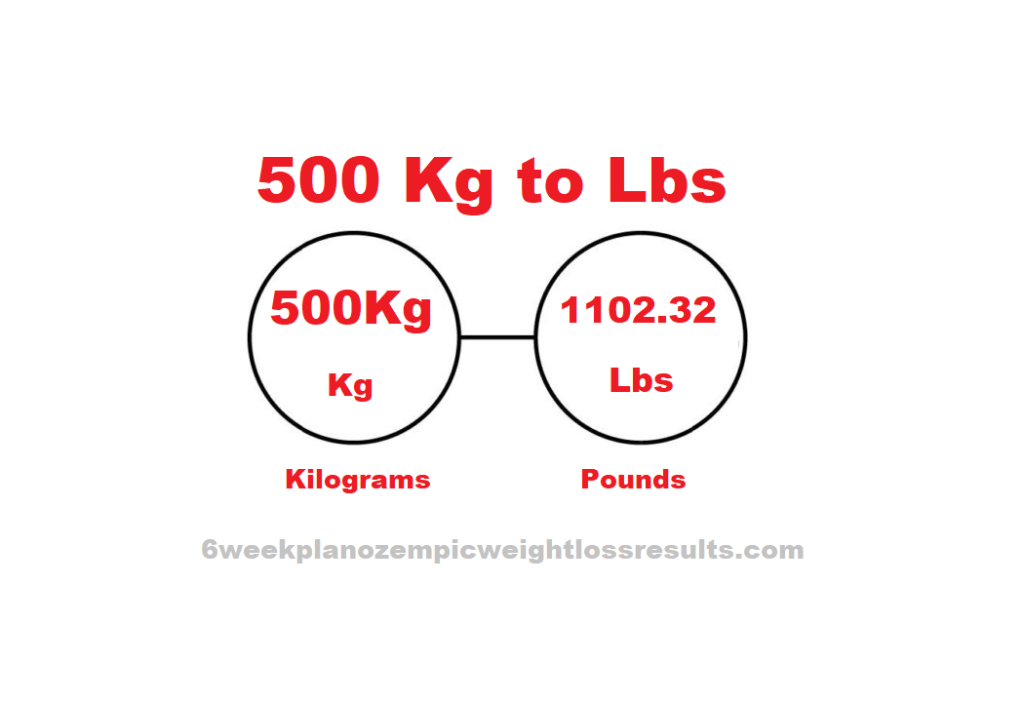Contents
- 1 Convert 500 Kg to Lbs A Comprehensive Guide to Converting Kilograms to Pounds
- 2 Understanding Kilograms and Pounds Weight
- 3 Conversion Factor Kg to Lbs
- 4 Step-by-Step Guide to Convert 500 Kilograms to Pounds
- 5 500 Kilograms to Pounds Weight
- 6 Convert 500 Kg to Lbs Table
- 7 Comparing Kilograms and Pounds
- 8 FAQs About Converting Kilograms to Pounds
- 8.1 Q: Why do we need to convert kilograms to pounds?
- 8.2 Q: Can I use a calculator to convert kilograms to pounds?
- 8.3 Q: Are there any rounding errors in the conversion process?
- 8.4 Q: Can I convert pounds to kilograms using the same conversion factor?
- 8.5 Q: How can I cite the conversion information for future reference?
- 9 Conclusion
Convert 500 Kg to Lbs A Comprehensive Guide to Converting Kilograms to Pounds
Understanding Kilograms and Pounds Weight
Before we delve into the conversion process, it’s important to understand what kilograms and pounds represent and how they differ from each other.
- Kilograms: A kilogram is a unit of weight commonly used in the metric system. It is equal to the mass of the International Prototype of the Kilogram (IPK), which is a platinum-iridium cylinder kept at the International Bureau of Weights and Measures in France. Kilograms are used worldwide for scientific, commercial, and everyday purposes.
- Pounds: A pound is a unit of weight commonly used in the United States and the British commonwealths. It is defined as exactly 0.45359237 kilograms. Pounds are used for various applications, such as measuring body weight, groceries, and certain industrial commodities.
Both kilograms and pounds are units of weight, but their conversion factor allows us to convert between the two systems and compare measurements.
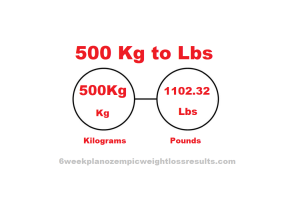
Conversion Factor Kg to Lbs
To convert kilograms to pounds, we use a conversion factor that represents the relationship between the two units. The conversion factor for kilograms to pounds is approximately 2.2046244201838. This means that 1 kilogram is equal to approximately 2.2046244201838 pounds.
By multiplying the number of kilograms by the conversion factor, we can obtain the equivalent weight in pounds. The use of the conversion factor ensures accurate and precise conversions between the two systems.
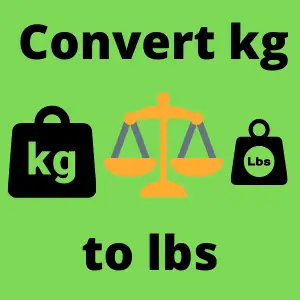
Step-by-Step Guide to Convert 500 Kilograms to Pounds
Now that we have the necessary background information, let’s dive into the step-by-step process of Convert 500 Kilograms to Pounds Weight. By following these simple steps, you’ll be able to perform the conversion accurately:
Step 1: Retrieve the conversion factor: 1 kilogram equals approximately 2.2046244201838 pounds.
Step 2: Multiply the number of kilograms by the conversion factor: 500 kg * 2.2046244201838 = 1102.3122100919 pounds
Therefore, 500 kilograms is equal to approximately 1102.3122100919 pounds.
500 Kilograms to Pounds Weight
To convert 500 Kilograms to Pounds Weight, we can simply multiply the number of kilograms by the conversion factor. Let’s do the math:
500 kg x 2.2046244201838 = 1102.3122100919 lb
Therefore, 500 kilograms is equal to 1102.3122100919 pounds.
See more: Convert 800 Grams to Pounds
Convert 500 Kg to Lbs Table
If you need to convert various values from Kg to Lbs, it can be useful to have a conversion table. Here’s a sample conversion table for Kg to Lbs:
| Kilograms (kg) | Pounds (lb) |
| 0.01 | 0.02 |
| 0.1 | 0.22 |
| 1 | 2.2 |
| 2 | 4.41 |
| 3 | 6.61 |
| 5 | 11.02 |
| 10 | 22.05 |
| 20 | 44.09 |
| 50 | 110.23 |
| 100 | 220.46 |
| 1000 | 2204.62 |
Feel free to refer to this table for quick conversions.
Comparing Kilograms and Pounds
While kilograms and pounds are both units of weight, there are some notable differences between them:
- Measurement systems: Kilograms are a part of the metric system, which is used internationally, while pounds are primarily used in the United States and the British commonwealths.
- Conversion factor: The conversion factor between kilograms and pounds is approximate due to the different standards used in each system. However, it is accurate enough for most practical purposes.
- Precision: The metric system, represented by kilograms, is typically more precise in measurements compared to the imperial system, represented by pounds.
- Usage: Kilograms are commonly used in scientific, industrial, and commercial applications, while pounds find frequent use in everyday situations such as measuring body weight and groceries.
Understanding these differences can help us navigate between the two systems more effectively and make accurate conversions when necessary.
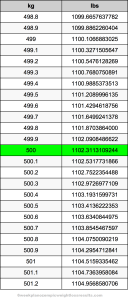 FAQs About Converting Kilograms to Pounds
FAQs About Converting Kilograms to Pounds
To further enhance your understanding of converting kilograms to pounds, here are some frequently asked questions along with their answers:
Q: Why do we need to convert kilograms to pounds?
A: The need to convert kilograms to pounds arises when working with data or measurements from different systems. It allows for easier comparison and compatibility between different units.
Q: Can I use a calculator to convert kilograms to pounds?
A: Yes, using a calculator can be helpful for precise conversions. However, it is important to understand the concept and utilize the appropriate conversion factor.
Q: Are there any rounding errors in the conversion process?
A: Yes, there may be some rounding errors involved due to the approximation of the conversion factor. However, these errors are typically negligible for most practical purposes.
Q: Can I convert pounds to kilograms using the same conversion factor?
A: No, to convert pounds to kilograms, you need to use the reciprocal of the conversion factor. Divide the number of pounds by the conversion factor to obtain the equivalent weight in kilograms.
Q: How can I cite the conversion information for future reference?
A: To cite the conversion information, you can use the following reference:
- “Convert 500 Kilograms to Pounds” At the official website
Q: Is the conversion factor between kilograms and pounds exact?
A: No, the conversion factor is an approximate value due to the different standards and rounding involved in each system. However, it is accurate enough for most practical applications.
By understanding the answers to these frequently asked questions, you can address any concerns or doubts you may have about converting kilograms to pounds.
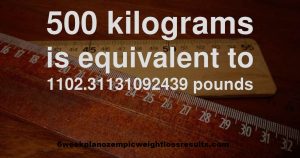
Conclusion
Converting between different weight units, such as kilograms and pounds, is a valuable skill that can be applied in various fields and everyday life. In this comprehensive guide, we have explored the step-by-step process of converting 500 kilograms to pounds using the appropriate conversion factor. We have also discussed the differences between kilograms and pounds, provided practical examples, and answered frequently asked questions to enhance your understanding.
Remember, accurate conversions are crucial for precise measurements and comparisons. By utilizing the conversion factor and understanding the relationship between kilograms and pounds, you can confidently convert between these units and expand your knowledge of weight measurements. So, the next time you encounter the need to convert 500 kg to lbs or any other conversion, refer back to this guide and convert with ease!
See more: What is 190 lbs to kg
See more:


